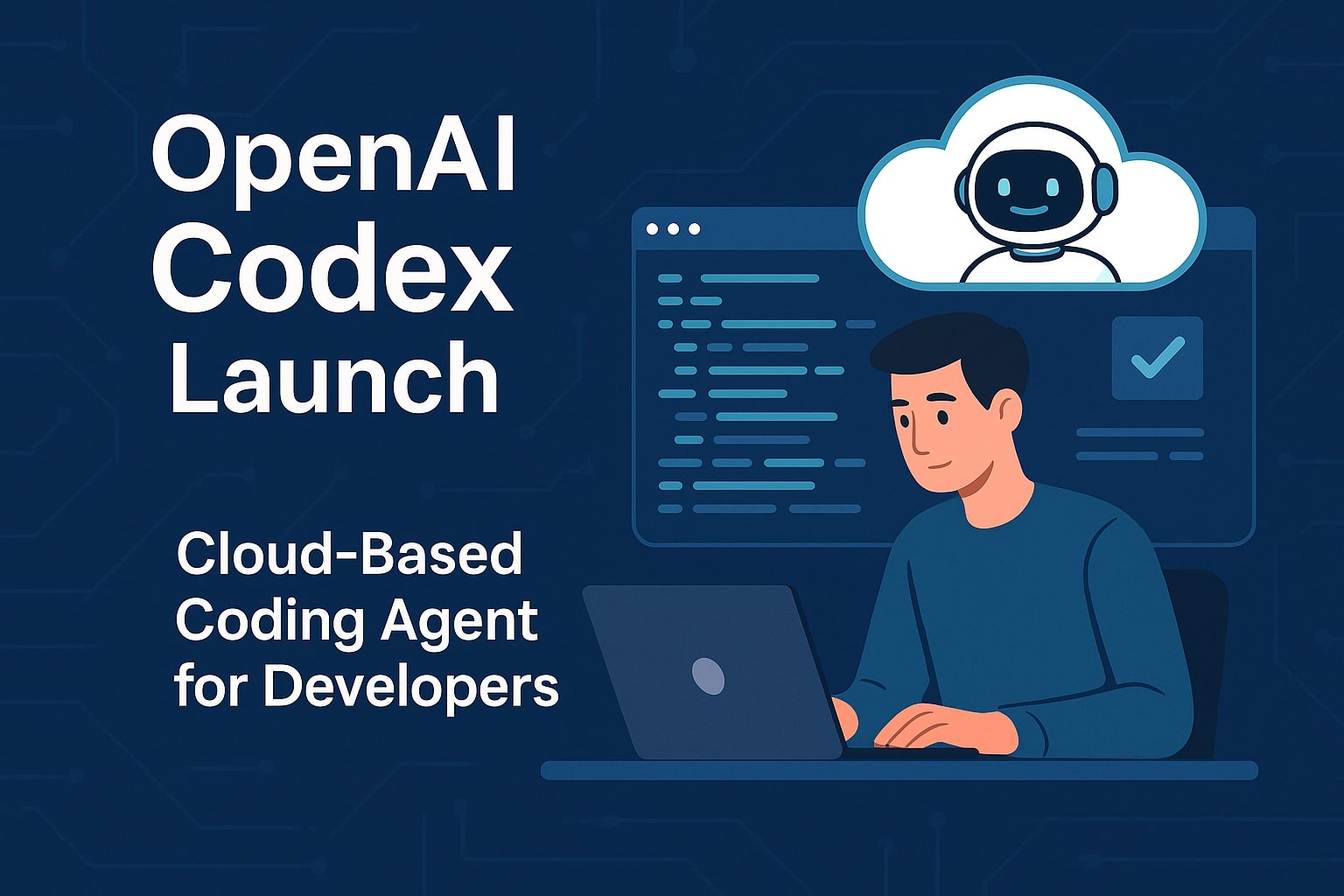The future of software engineering is taking shape, and OpenAI is leading the charge. This week, OpenAI introduced the Codex Agent—a powerful, cloud-based AI assistant that aims to work with developers instead of replacing them. Designed to run coding tasks in parallel within isolated cloud environments, Codex represents a major leap in AI-assisted development and could change how companies build software forever.
But is it ready for real-world application? And how does it compare with emerging competitors like Cognition Lab’s Devin?
What Exactly is OpenAI Codex Agent?
At its core, the Codex Agent is a specialized version of OpenAI’s latest model—internally known as Codex One, a fine-tuned variant of the powerful GPT-4o (O3) architecture. It’s designed specifically for software engineering tasks.
Unlike traditional AI coding assistants like GitHub Copilot, Codex Agent is cloud-native and capable of running multiple tasks in parallel. All a developer needs to do is connect a GitHub repo and set up an agent.md file with task instructions. From there, the agent takes over—scanning the repo, setting up environments, running unit tests, and even creating pull requests (PRs) that the developer can review and merge.
Not Just Smarter—More Collaborative
Codex Agent doesn’t just generate code snippets. It aims to be a collaborative teammate for developers. Tasks can range from fixing bugs to implementing entirely new features. Developers stay in control—approving or modifying the agent’s changes via GitHub PRs.
The system also displays real-time progress of task execution, providing full transparency. This makes Codex much more than a “code generator”—it’s a step toward intelligent software automation.
Big Promise, Some Limitations
As promising as Codex Agent is, it’s not without flaws. One major limitation: no internet access during task execution.While this enhances security, it also means the agent can’t update outdated libraries or fetch the latest documentation—something developers often rely on.
OpenAI is upfront about this tradeoff, citing safety and transparency. But critics argue that this limits the agent’s usability in modern, fast-moving codebases that depend on external APIs and packages.
Codex Agent vs Devin: Battle of the Coding Agents
Codex enters a competitive space already seeing buzz around Devin, the AI software engineer from Cognition Labs. While both offer cloud-based, autonomous coding, Codex has the edge in integration with GitHub and the ChatGPT ecosystem, making it more accessible for the vast OpenAI user base.
That said, real-world performance remains the ultimate test. Early users say Codex is powerful “when it works,” but not flawless. Benchmarks show improvements over GPT-4o High in specific tasks, but questions remain around consistency.
Why This Is a Wake-Up Call for Developers
OpenAI’s Codex Agent is not just a tech release—it’s a statement. AI is no longer just assisting coders; it’s collaboratingwith them. As Greg Brockman from OpenAI puts it, developers will need to focus on good engineering practices—modular code, tests, documentation—to truly unlock the potential of AI coding agents.
This isn’t about learning a new tool—it’s about adapting your mindset. AI agents thrive in well-structured codebases. And that means developers who upskill in clean, test-driven development will have a major advantage.
Business Implications: AI Developers at Scale?
Imagine startups and enterprises alike deploying Codex to scale their engineering efforts. This could reduce development costs, increase deployment speed, and unlock innovation for companies that previously lacked technical depth. As the tool matures, expect to see it used widely in backend automation, code maintenance, and even open-source contributions.
Conclusion
Codex Agent isn’t just a tool—it’s the next evolution of human-AI collaboration in software development. While still in preview and with some clear limitations, it signals a shift in how developers, businesses, and the tech industry will build the future.
If you’re a developer, the message is clear: adapt now, or risk falling behind.
